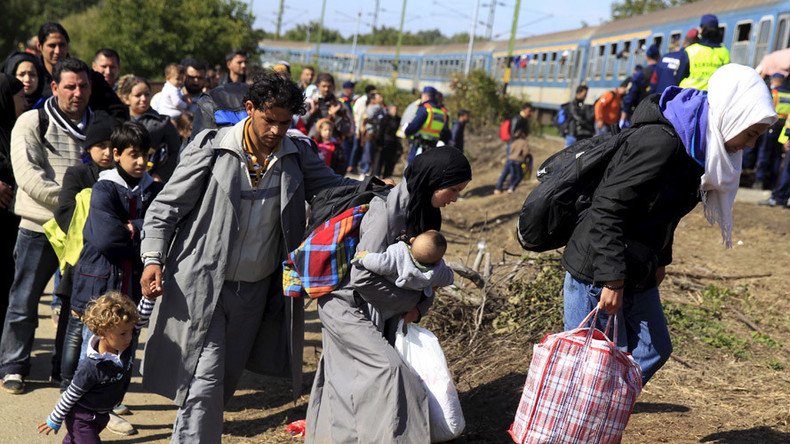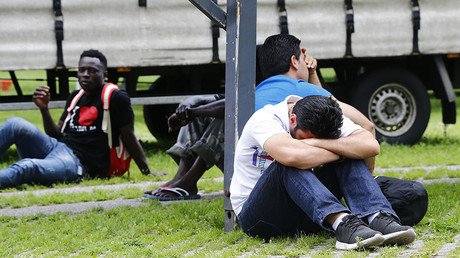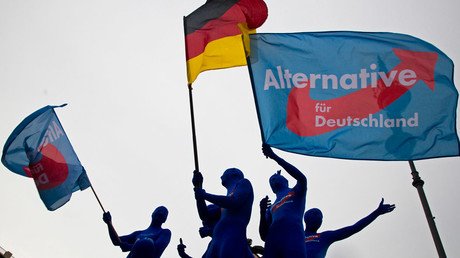Building walls only worsens refugee crisis – German Left politician to RT

Whoever wants to “build walls” to deter migrants arriving in Europe is wrong, a prominent German Left Party MP told RT. The hardline measures prevent the root causes of the refugee crisis from being tackled from the outset, he said.
“We have to make it clear to people that this is unrealistic,” Gregor Gysi, an outspoken German MP from the Left Party told RT in an interview Friday, referring to any measures aimed at deterring refugees from arriving in European countries.
“If you build a wall you fail to sort out the problems that caused you to build it in the first place. And by building the wall you lose the capacity to be able to solve those problems which stay on the other side of that wall,” he said, stressing that measures like those proposed by the Hungarian Prime Minister Victor Orban only make the situation worse.
“One day you'll have 1 million people storming this wall and you have a situation that is out of control. The only way to avoid this is to fight the problems that cause people to flee in the first place,” Gysi warned, adding that fighting the root causes of the refugee crisis is “the only way to reduce the number of refugees.”
He particularly stressed that “the war in Syria has to be stopped, and this should come only through a compromise between the US and Russia” if Europe wants to put an end to the ongoing refugee influx from the Middle East.
The politician also urged Europe “to stop exporting cheap products to Africa and make [those countries] run their own agriculture.” He also was ambivalent about the role of the European border agency Frontex, which is in charge of tackling illegal migration.
“Open borders in Europe are a big win, and we should not be dreaming of walls,” he said, referring to Frontex. “We already had one of those here in Berlin and it was not the right way,” Gysi stressed, referring to the infamous Berlin wall constructed by the former East Germany.
At the same time, he stressed that “we do need security control to prevent terrorists from coming into Europe.”
The comments by the prominent left wing politician come as the right-wing Eurosceptic Alternative for Germany Party (AfD) enjoys the highest level of public support in its history. A September 21 poll published by Germany’s public broadcaster ARD showed that nationwide public support for AfD had risen to 16 percent, making it the third most popular political force in Germany.
The Left Party lost one percent in comparison to the September 1 poll and now holds only eight percent support.
The rising popularity of the AfD is just one sign of the growing public distaste with German Chancellor Angela Merkel’s open-door policy towards migrants in Germany, which took over 1 million refugees last year.
Support for Merkel’s Christian Democratic Union (CDU) and their coalition partners, Social Democrats (SPD), is fading while an increasing number of German politicians, including the chancellor’s allies, criticize her for her stance on the refugee issue.
Earlier, Horst Seehofer, Prime Minister of Bavaria and leader of the CSU, the junior coalition party of Merkel’s CDU demanded that the Chancellor introduce an upper limit on refugees, with no more than 200,000 new arrivals allowed in the country each year.
Should Merkel fail to do so, Seehofer told Spiegel on September 16, his party will not help the Chancellor during the 2017 general election.
In the meantime, German authorities report a significant increase in assaults on refugees and the spread of xenophobic sentiment in the eastern German states that previously formed the German Democratic Republic, where the average number of such attacks is five times higher than in West Germany.














